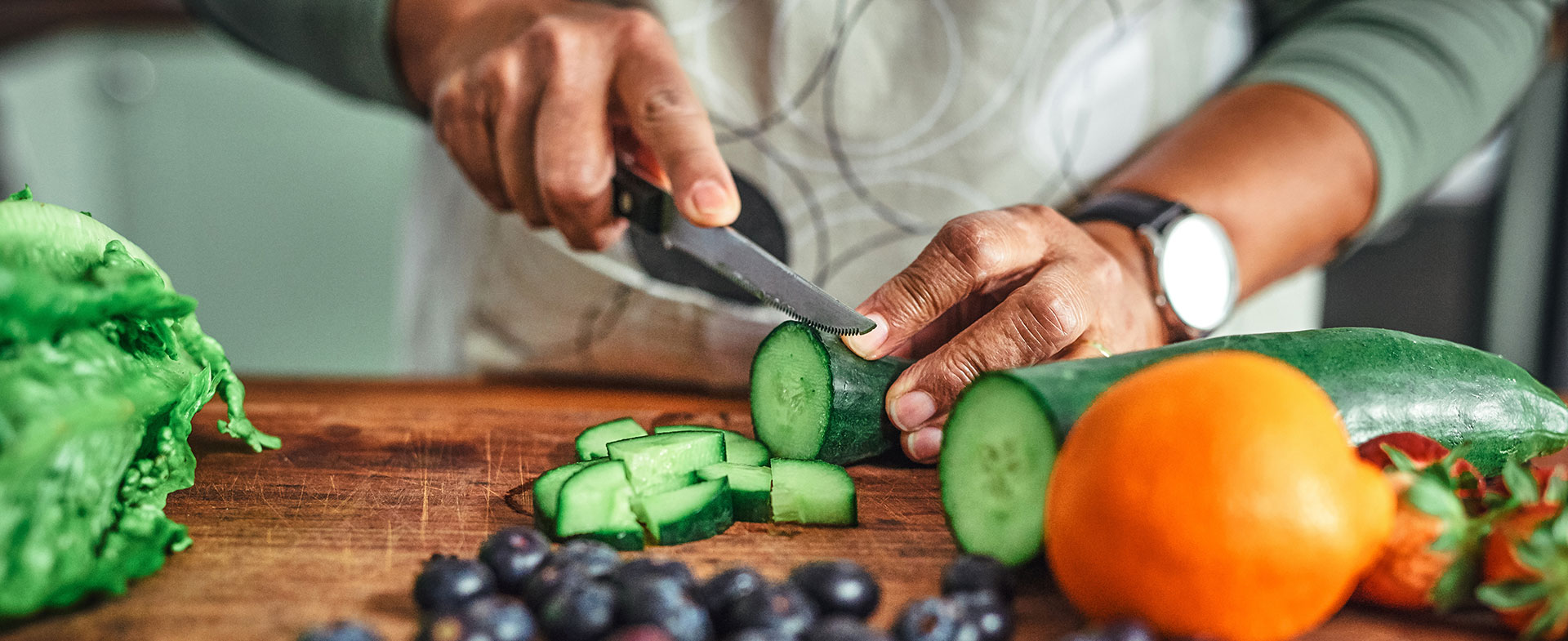You’re likely familiar with cholesterol – it’s that wax-like substance in your blood that is created naturally by the liver and can also be found in the foods you eat. It is a necessary compound for cell growth within the body and hormone production. The downside? Consuming too much of the wrong kind can be harmful to your health. While medications can be prescribed by your doctor to help, there are many ways that you can take action to lower your cholesterol naturally – often just by making simple lifestyle modifications.
Understanding The Risk Of High Cholesterol
There are two different types of cholesterol: Low-density lipoproteins (LDLs) known as “bad” cholesterol and high-density lipoproteins (HLDs), known as “good” cholesterol. Foods that are high in saturated and trans fats can raise your LDL cholesterol levels. Consuming high levels of bad cholesterol can lead to plaque buildup in your arteries – increasing your risk for a heart attack, stroke or peripheral artery disease.
“Having high cholesterol can make you more vulnerable to bodily inflammation,” says Ryan Gindi, M.D., a cardiologist at Henry Ford Health. “Regardless of if that inflammation is caused by an infection within the body or something you consume, it allows cholesterol deposits to get into the arterial walls and eventually cause blockages. Some people with high cholesterol may not have evidence of plaque buildup but can still be at risk of developing health complications because of their cholesterol levels.”
How To Lower Your Cholesterol
“Anyone can take action to lower their cholesterol levels,” says Dr. Gindi. “While it can take some time to lower your cholesterol levels, your doctor can work with you to set realistic goals for improvement. Once your goals are set, your doctor will want to meet with you every 8-12 weeks to evaluate your progress and adjust your approach as needed.”
Here, Dr. Gindi provides advice on how your can tweak your lifestyle to improve your cholesterol levels without the need for medication:
Modify Your Food Intake
Since our bodies naturally produce cholesterol, your diet is the only way that additional cholesterol (good or bad) gets into your system. Adjusting your diet is your best bet for making progress toward improving your cholesterol levels. Use these steps to get started:
- Start by eliminating or minimizing foods that will increase your cholesterol levels – think foods high in saturated and trans fats and processed foods such as red meat, pork, full-fat dairy products like heavy cream, fried foods, butter and tropical oils.
- Swap these products for foods that are good sources of healthy fats such as avocados, nuts, fish, soy products and extra virgin olive oil.
- Eat more fiber. “Fiber binds to cholesterol to pull it out of your GI track,” adds Dr. Gindi. “Beans, lentils, chickpeas and leafy greens are all great sources. You might also consider options like steel-cut oatmeal or cereals like Fiber One and Cheerios for breakfast."
- Add more fruits and vegetables to your diet. Not only can these foods improve cholesterol, but many are great sources of other vitamins and nutrients that your body needs to function.
All Exercise Is Good
“Moderate to high-intensity exercise helps get your heart pumping and your blood circulating,” says Dr. Gindi. “This can lower your high cholesterol and your risk for heart disease.”
The Centers for Disease Control and Prevention (CDC) recommends a minimum of 150 minutes of exercise each week. Think of that as doing something as simple as a 30-minute brisk walk after dinner five times a week. But Dr. Gindi notes that high-intensity interval training (HIIT) workouts might be best because they push your body to use its fat reserves, which helps keep cholesterol low.
Treat Your Body Well

In addition to diet and exercise, it’s always a good idea to quit smoking and limit your consumption of alcohol. Both can cause inflammation and increase your risk for heart disease.
“Some people who struggle to make changes to their diet use supplements to help,” says Dr. Gindi. “While some supplements could have an impact on lowering your cholesterol, it’s preferred that you stay away.”
Because supplements aren’t FDA-regulated, you don’t really know how much of one you are consuming. Always talk to your doctor before self-prescribing any supplements. Instead, Dr. Gindi simply recommends you look for ways to add foods to your diet. For example, instead of taking a fiber or garlic supplement, add more fiber-dense foods to your diet and consider adding garlic into dishes as you cook. You can also purchase fortified foods if you are looking to get added nutrients from the foods you eat.
“With any of these lifestyle modifications, it is all about being genuine with yourself and taking the time to make changes, so you aren’t dealing with the consequences of your poor choices later on,” says Dr. Gindi. “While a lot of these things like eating right and exercising might seem like simple changes, they are often the recommendations that people are least likely to take.”
If you have a history of heart attack or stroke, your doctor will likely recommend a more aggressive approach to lowering your cholesterol with medication, though it is still best practice to make lifestyle changes to also help improve your cholesterol levels.
Reviewed by Dr. Ryan Gindi, a cardiologist who sees patients at Henry Ford West Bloomfield Hospital and Henry Ford Medical Center – Bloomfield Township.



